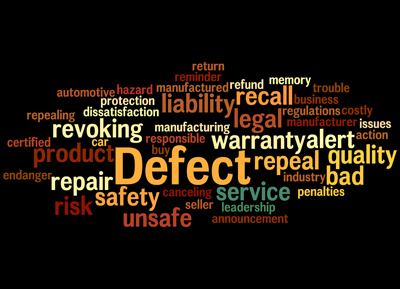
Complaint Handling, & MDRs for Devices
(On-site or Virtual Private Group/Company Training)
Location: On-site or Virtual
Who: Your entire company, department, project team, you select
Overview:
According to recent FDA published data, ~90% of all Medical Device Warning letters had at least one CAPA related citation and 70% of the top seven FDA 483 inspection observations were directly related to Complaint Handling, MDRs, or CAPA. FDA will scrutinize your CAPA system during your next inspection and you must be prepared. When properly implemented, Complaint Handling and Medical Device Reports (MDRs) are usually a manufacturer's first alert to product issues that may result in a correction, removal or recall - which is why FDA is so concerned about these activities. Complaint Handling, Medical Device Reporting (MDR), and Corrective & Preventative Activities (CAPA) compliance are critical to the survival of all device manufacturers. The majority of FDA Warning Letters and serious enforcement actions, including criminal & civil penalties have been levied on companies that failed to properly report events and take proper corrective actions. Additionally, product liability and financial risks are staggering when companies fail to properly report and take corrective action when required. Understanding what constitutes a complaint and when & how it needs to be reported as a formal Medical Device Report (MDR) is very important and will be discussed in detail with examples. This course will provide an understanding of the interrelationship of Complaint Handling, Medical Device Reporting, CAPA, and the Risk Management processes. This course will be beneficial to all device manufacturers and is recommended for any individuals or teams that are involved in complaint handling, medical device reporting (MDR), correction & removal processes (CAPA), and recall decisions. A former FDA Field Investigator for over 35 years and over 400 QS inspections can be available as a featured instructor along with a medical device industry expert specializing in helping medical device manufacturers with Complaint Handling and MDRs.What you will learn:
- How to properly document, investigate, and manage product complaints.
- Understanding what constitutes a complaint.
- MDR reporting requirements including how and when to file Medical Device Reports (MDR), and eMDR program.
- New FDA MDR Voluntary Malfunction Summary Reporting Program for manufacturers.
- FDA MDR exemptions.
- Understanding how Complaint Handling and Medical Device Reports (MDR) are used as input to Recall decisions.
- Understand the relationship of the CAPA and Risk Management processes as they relate to complaints, reportable events and recalls.
- Key factors in implementing and maintaining compliance with Complaint Handling, MDR and CAPA regulations.
- What FDA expects to find during an Inspection of your Complaint Handling and MDR reporting systems.
Benefits of Attending:
- Understand how to comply with complicated Complaint Handling and Medical Device Reporting requirements.
- Being prepared for your next FDA inspection.
- Minimizing the risk of regulatory enforcement actions especially as it pertains to these highly targeted and frequently cited activities.
- Assist with the creation and maintenance of effective procedures for handling complaints and reportable events.
- Understand the relationship and interaction with other quality system elements as they relate to complaints and reportable events.
- Walk-through of case examples.
- Learn from real life experiences of FDA and Industry Veterans.
Abbreviated Outline:
- A. Introduction
- B. Overview: Complaints, MDRs
- C. Understanding Complaint Handling Systems
- D. FDA Expectations: Complaint System Inspections
- E. Medical Device Reporting (MDR): How to and FDA expectations
- F. Workshop: Complaints vs. MDRs
- G. Corrective & Preventive Action System (CAPA)
- H. Relationship of Complaint Handling, MDRs, CAPA, and Recall decisions
- I. Examples & Discussion of FDA Warning Letter citations: learn from other's mistakes.
- J. Review & Summary
- K. Seminar Evaluation & Test
- L. Question & Answers- Panel
Instructor(s): To be determined based on schedule and your specific needs. All instructors are very experienced and experts in the field being taught. Biographies will be provided and a discussion with the instructor(s) will be arranged so that a proposal can be provided for training that meets your needs.
Duration: Standard course is approximately 8 hours. Customized courses can vary. On-site courses are typically taught in 1 day. Virtual courses can be taught over multiple days, e.g. 2 days for 4 hours/day, etc.
Request a training proposal for your company.